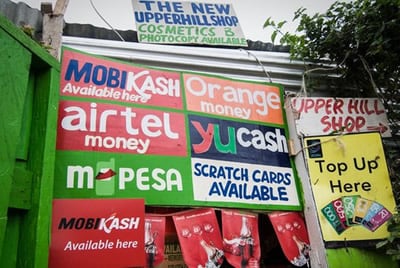Still, peer-to-peer payments and cash-in-cash out are dominating the mobile money sector.

Africa accounts for 70% of the world’s $1 trillion mobile money value. Cash-in-cash-out and P2P payments account for the bulk of that value; for the numerous fintech targeting the African market, this is where the real opportunities are.
M-Pesa started as an idea but ended up creating a revolution. A revolution that caused a highly unbanked population to be able to “keep money on their mobile phone”. In Europe, this is known as e-money and is a regulated business done by E-Money institutions (EMIs).
What is E-money?
Electronic money, also known as e-money, is a digital equivalent of cash money stored in EMI computer systems (e-wallets) or banking computer systems to facilitate transactions. Because of the enormous efficiency of this technology, electronic money is mainly used for electronic activities. Its value is usually determined by the same financial factors as fiat currency and can thus be converted into a tangible form.
E-money in Africa
Today, it is mainly equivalent to mobile money and regulated mainly by the central bank. So, where Europe allowed private companies to issue e-money, this is primarily done by Mobile Network Operators (MNO) in Africa. In most cases, the MNOs have been forced to split up the business entities in two, one for the mobile money part and one for the mobile network part.
The future of mobile money
I think two things will happen:
1 – Further growth in mobile money
Various African countries have reached different steps in their evolution in adopting mobile money. I believe the markets that have embraced mobile money will continue to grow, still being led by East Africa. Still, other countries like Nigeria and Ethiopia will also gain traction. I believe cash-in-cash out, peer-to-peer payment and various credit offerings will be the primary growth. The different credit offerings are the service that most Mobile Money providers are focusing on today: expensive credit that focuses on quick loans with a high-interest rate. Instead, I believe it will continue growing rapidly.
2 – New E-wallet providers coming
I believe we will see Fintechs starting to offer E-wallets and not being a Mobile Network Operator. We already see this happening in East Africa with AzamPesa in Tanzania and Wave in Uganda.
The Fintech opportunity
It’s natural to think that a startup has to challenge something existing. Or to be a first mover in the market. These things are expensive, take a lot of time and have a relatively low chance of success. Instead, I think the real opportunities are building solid partnerships with already existing players, banks, mobile money providers, or other E-wallet providers entering the scene. Building services on top of them allows for good partnerships, aligns multiple players toward the same goals and ensures real innovation in the market.
Summarised: I believe the most significant opportunity is to build products and services that ensure that the money stays in the current ecosystem instead of just being cashed out.

Comments